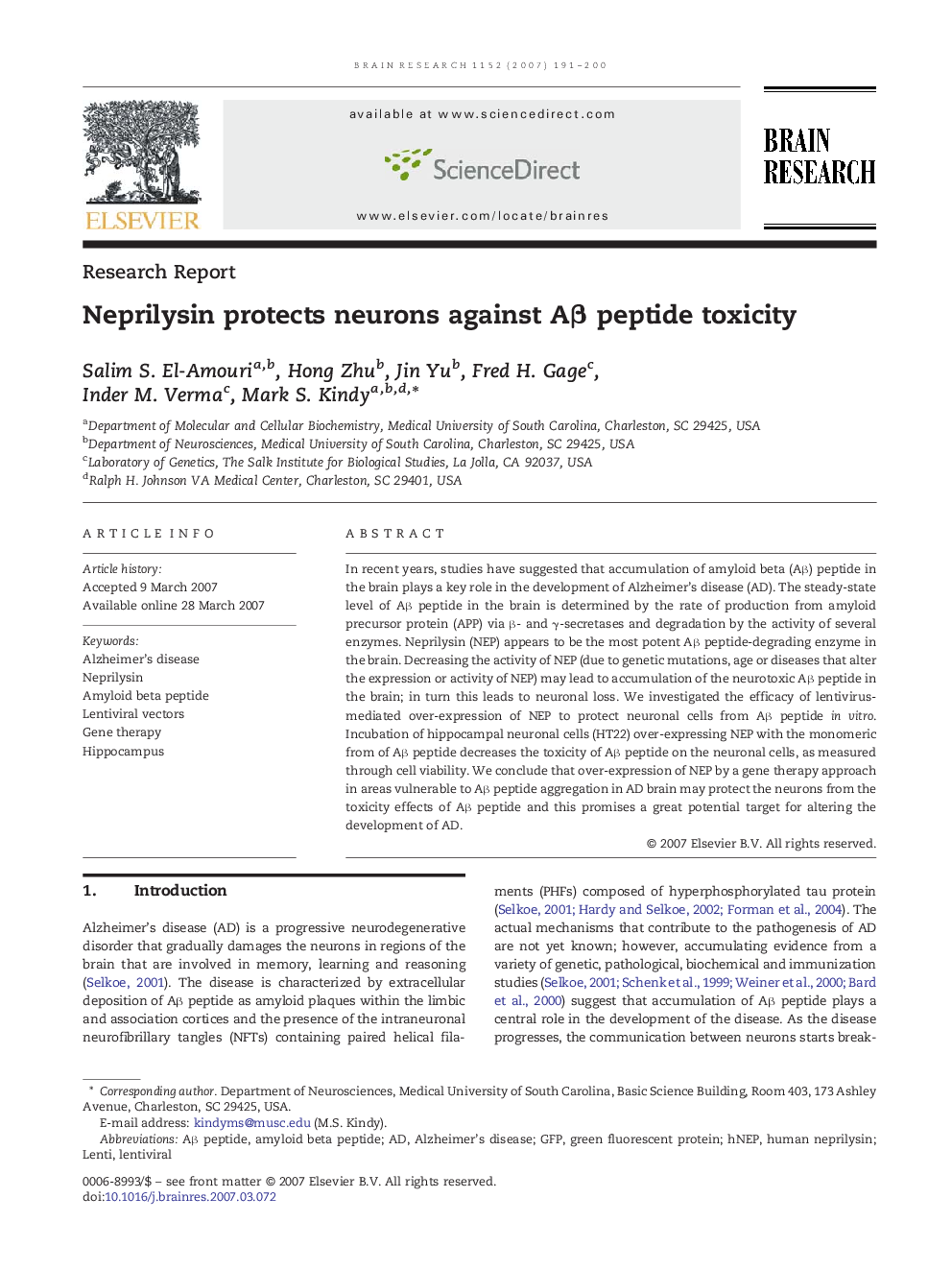| Article ID | Journal | Published Year | Pages | File Type |
|---|---|---|---|---|
| 4331000 | Brain Research | 2007 | 10 Pages |
In recent years, studies have suggested that accumulation of amyloid beta (Aβ) peptide in the brain plays a key role in the development of Alzheimer's disease (AD). The steady-state level of Aβ peptide in the brain is determined by the rate of production from amyloid precursor protein (APP) via β- and γ-secretases and degradation by the activity of several enzymes. Neprilysin (NEP) appears to be the most potent Aβ peptide-degrading enzyme in the brain. Decreasing the activity of NEP (due to genetic mutations, age or diseases that alter the expression or activity of NEP) may lead to accumulation of the neurotoxic Aβ peptide in the brain; in turn this leads to neuronal loss. We investigated the efficacy of lentivirus-mediated over-expression of NEP to protect neuronal cells from Aβ peptide in vitro. Incubation of hippocampal neuronal cells (HT22) over-expressing NEP with the monomeric from of Aβ peptide decreases the toxicity of Aβ peptide on the neuronal cells, as measured through cell viability. We conclude that over-expression of NEP by a gene therapy approach in areas vulnerable to Aβ peptide aggregation in AD brain may protect the neurons from the toxicity effects of Aβ peptide and this promises a great potential target for altering the development of AD.
